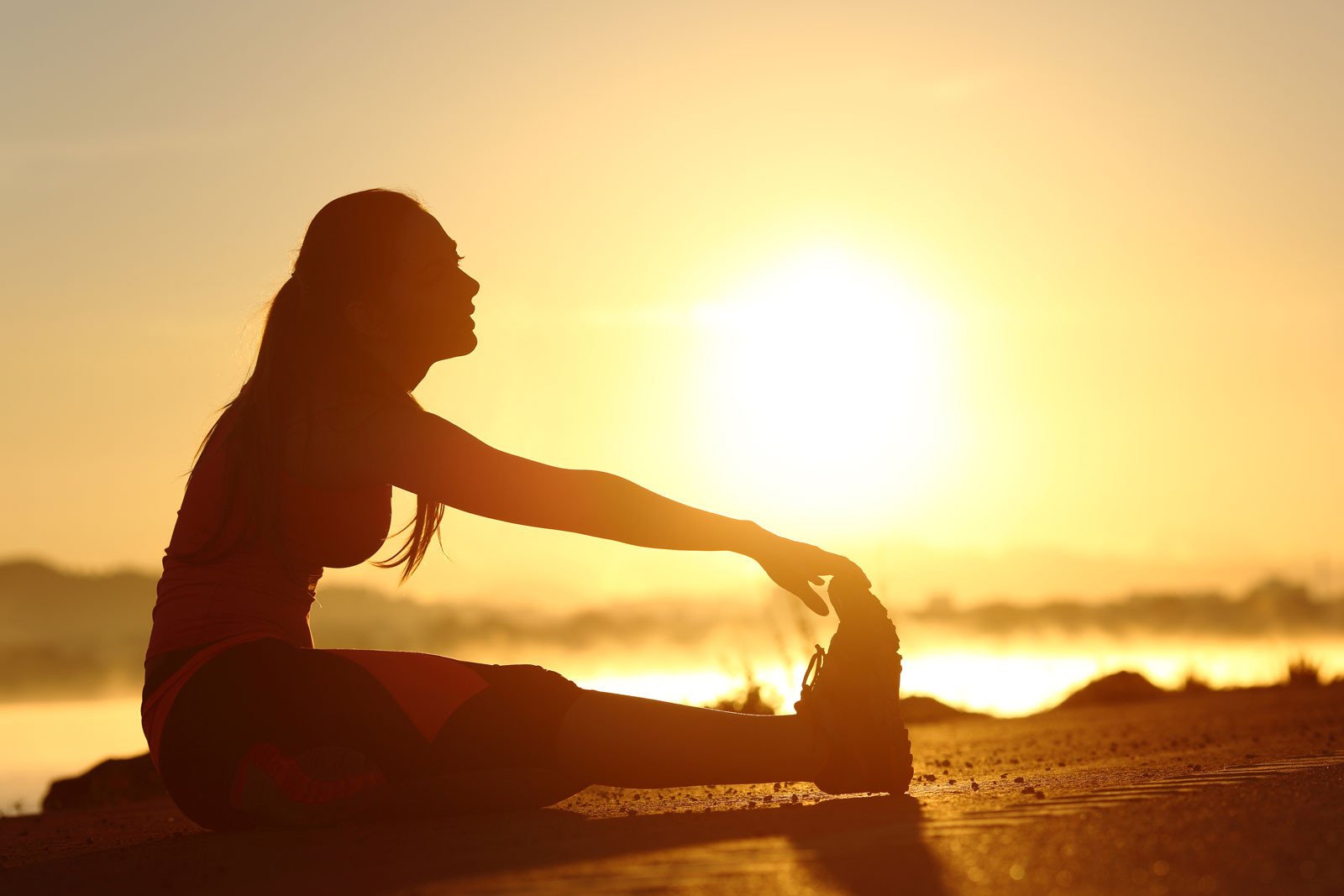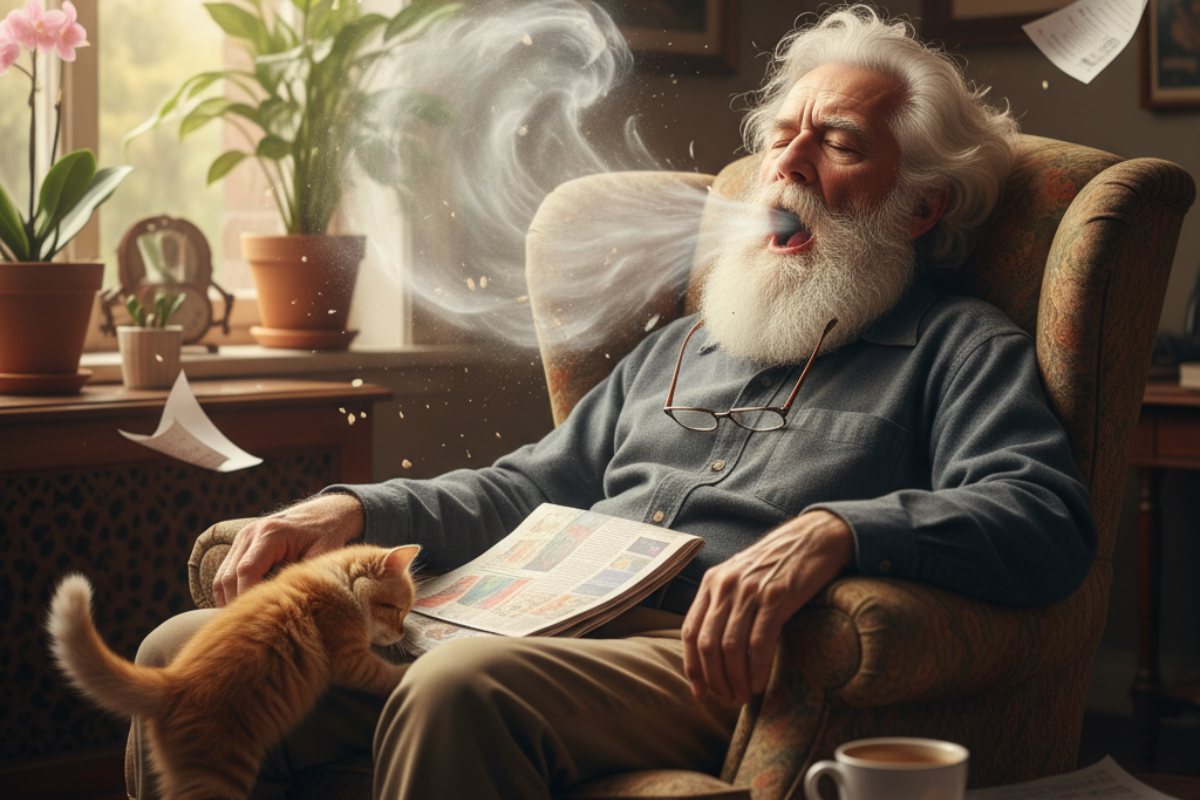Free Shipping - On Orders Over $175 (USA, Canada, UK, & AU)

Why Can’t I Sleep Even Though I’m Tired?
August 24, 2021 4 min read
Exhausted and barely functioning, you think that if it weren’t for those endless cups of coffee, you wouldn’t make it through the day. Then as you finally hit the sack... nothing! No matter how many sheep you count, you can’t seem to get the restful sleep your body desperately needs.
So, what’s happening here?
What you may be dealing with is insomnia due to overtiredness. In other words, you’re too tired to sleep, as paradoxical as that may sound. Usually, a problem recognized in small children, overtiredness can affect adults in the same way as toddlers and preschoolers — making it difficult to wind down when you should.
However, sleep problems happen for a multitude of other reasons, so overtiredness isn’t the only problem to blame. Keep reading to see why we sometimes can’t sleep despite being exhausted and what you can do to get well-deserved shut-eye.
Tiredness vs. Sleepiness
We often hear these terms used interchangeably since both are unspecific. But for simplicity’s sake, let’s say that tiredness refers to feeling drained of strength and energy to the point of exhaustion, while sleepiness is drowsiness and difficulty staying awake.
Both are normal phenomena in some cases or a symptom of health problems. Excessive tiredness, for example, is a common symptom of anemia, depression, and stress as being well as a normal response to vigorous exercise. Similarly, feeling sleepy is normal when it precipitates sleep but not so much when it disrupts your daytime functioning.
Knowing the difference between the two could help you understand what’s behind your sleep troubles. Because exhaustion prevents you from falling asleep is quite different from having insomnia, i.e. being sleepy but unable to fall asleep.
And if you feel like you’re unable to tell the difference, you’re definitely not alone. An article published almost two decades ago in the journal Sleep noted that many long-time insomniacs deny having excessive daytime sleepiness despite obvious signs they do. The authors wrote this could be because such folks are so used to feeling sleepy it’s become their day-to-day state.
Why You’re Unable to Sleep Despite Tiredness/Sleepiness
Let’s first explain why tiredness can interfere with sleep.
In short, overtiredness makes it hard for your body to function normally. Your body’s circadian rhythm is what normally regulates sleep. But many things can disrupt the circadian rhythm, and overtiredness due to exertion is one of them. Sleep deprivation puts further strain on the body, leading to a vicious cycle.
In other words, if you’re not giving your body the rest it needs to function properly, it could end up affecting your circadian rhythm. Not resting puts stress on the body and mind, and stress is a known risk factor for insomnia.
But even if you don’t feel you’re particularly stressed throughout the day, you could still be in a “hyper” state without knowing it. Many of us today forget how important it is to switch off from time to time from obligations, information, and thinking about the next thing to do. All this doing and not giving enough time to just unwind over stimulates the brain, making it hard for us to wind down.
Besides that, studies over recent years found that blue light from our smartphones, computers, and even LED lighting suppresses melatonin production. Melatonin is a hormone that the pineal gland secretes on environmental cues and that puts us in a sleepy state.
Primary insomnia, on the other hand, could be said to have a psychological basis instead of a behavioral one like what we described above. Researchers have long ago noted that many insomniacs suffer anxiety, depression, PTSD, and other mental health problems. Insomnia symptoms to look out for include difficulty falling asleep, staying asleep, waking up early, and feeling sleepy during the day.
How to Sleep Better
If you don’t suffer from primary insomnia, simple lifestyle changes, like practicing sleep hygiene may be enough to help you sleep. Sleep hygiene was for a long time recommended as first-line therapy in mild to moderate insomnia cases, but it’s now used as adjuvant therapy in most clinics.
What sleep hygiene involves is lifestyle habits that are conducive to better sleep. These include:
All these practices could help you learn how to prioritize rest and unwinding before bedtime — which can definitely prevent overtiredness.
However, if you suffer from severe insomnia, sleep hygiene alone is unlikely to help. Usually, insomnia is now treated with a combination of medication and cognitive-behavioral therapy (CBT). CBT providers identify thoughts, feelings, and behaviors that cause insomnia and help you reframe your thinking in a way that is conducive to sleep.
Takeaways
Not being able to sleep when we’re most tired seems counterintuitive. However, our bodies are complex machines and what seems logical to us is not how things naturally work.
An overtired body is an overstressed and overstimulated one. Stress, hyper-arousal, and being “on” all the time are not states that stimulate sleep. Unfortunately, many of us today forget to shut off from our devices and the world, which can be taxing to the mind and body, ultimately affecting the quality of our sleep.
In other cases, anxiety and other mental health problems are to blame for sleepless nights. In which case, lifestyle changes may not be enough to help you get back into a healthy sleep-wake cycle.
But an inability to sleep well is not limited to the above examples. Snoring and sleep apnea, restless leg syndrome, and other sleep disorders can also lead to daily fatigue and unrestful sleep. In these cases, other therapies like snoring mouthpieces can be the ticket to better sleep.
References:
Dement WC, Hall J, Walsh JK. Tiredness versus sleepiness: semantics or a target for public education?. Sleep. 2003;26(4):485-486. Available from: https://www.cdc.gov/niosh/nioshtic-2/20029160.html
Reddy S, Reddy V, Sharma S. Physiology, Circadian Rhythm. [Updated 2021 May 9]. In: StatPearls [Internet]. Treasure Island (FL): StatPearls Publishing; 2021 Jan-. Available from: https://www.ncbi.nlm.nih.gov/books/NBK519507/
Hatori M, Gronfier C, Van Gelder RN, et al. Global rise of potential health hazards caused by blue light-induced circadian disruption in modern aging societies. NPJ Aging Mech Dis. 2017;3:9. Published 2017 Jun 16. doi:10.1038/s41514-017-0010-2
Also in Blog

Foods from Every Food Group which Promote Sleep
November 20, 2025 4 min read

How Weather Changes Ruin Our Sleep (And How To Fight It)
November 10, 2025 4 min read

The Loudest Snoring in the World: Exploring the Grandpa Myth
November 04, 2025 3 min read
We've all heard them—the legendary, laugh-out-loud snoring jokes. The kind of tales that turn a common sleep annoyance into a funny family legend.
Join our Insiders Club
Every week you will receive specials, discounts, and giveaways.
Categories
- Better Sleep
- depression
- Fitness
- funny animal
- Global Citizenship
- health
- Mental Health
- mouthpiece
- nutrition
- pillow
- Productivity
- relationships
- sleep
- sleep apnea
- sleep deprivation
- Sleep Tech
- snoring
- snoring humor
- snoring jokes
- snoring sounds
- stop snoring
- StopSnoringStartLiving
- technology
- Tongue displacement
- travel
- video
- Young Adult
Recent Articles
- Foods from Every Food Group which Promote Sleep
- How Weather Changes Ruin Our Sleep (And How To Fight It)
- The Loudest Snoring in the World: Exploring the Grandpa Myth
- Can a Midday Nap Sharpen Your Mind? The Surprising Link to Better Sleep
- The Ultimate Guide to Adjusting Your Circadian Rhythm for Daylight Savings

